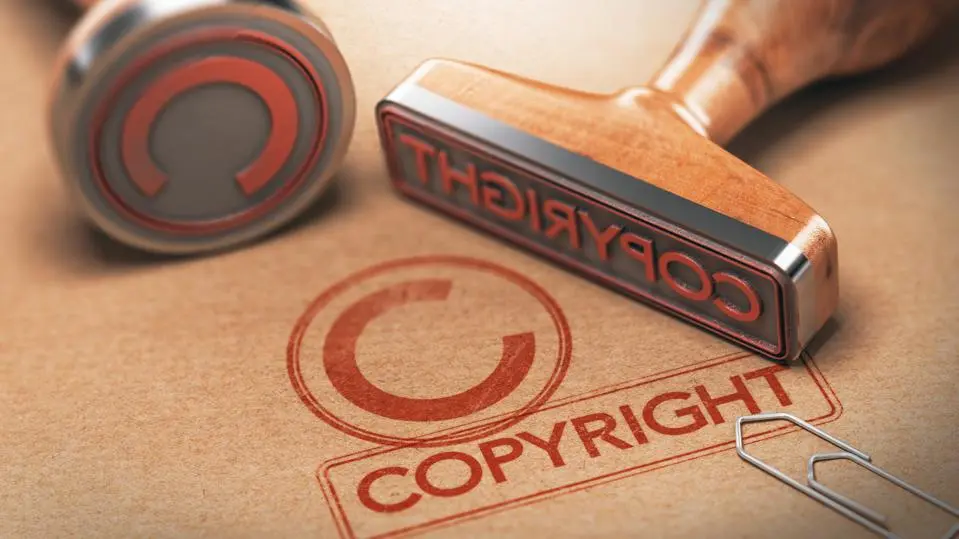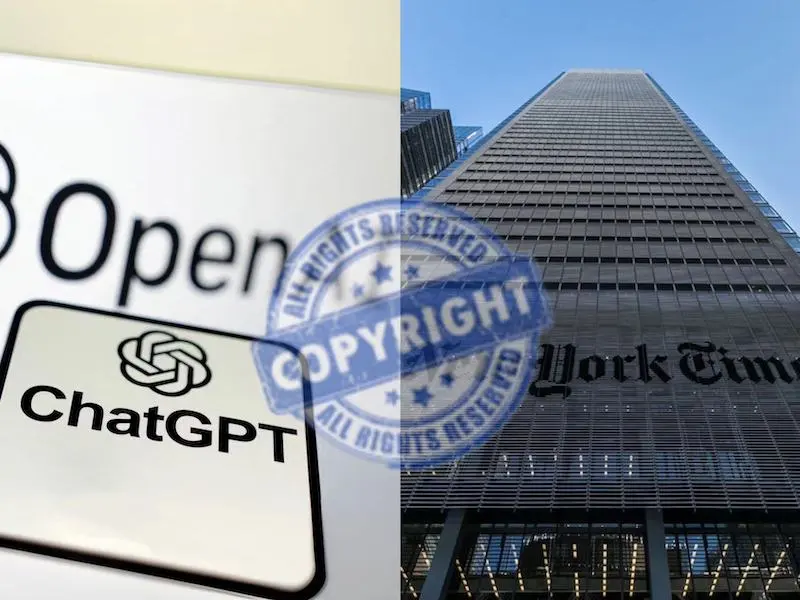- The New York Times is suing OpenAI and Microsoft, alleging copyright infringement through the use of millions of its articles to build AI models, seeking damages of billions of dollars.
- OpenAI has dismissed the claims as ‘without merit’ while expressing a desire for continued partnership, challenging allegations that its ChatGPT AI tool reproduced Times stories verbatim.
- OpenAI stands by its position that training AI models with internet data falls under fair use rules, despite respecting the legal rights of copyrighted works.
In the realm of artificial intelligence, OpenAI finds itself entangled in a copyright dispute with The New York Times, a legal battle that has recently surfaced. OpenAI, responding publicly to the lawsuit, categorically dismissed the allegations as “without merit” and expressed optimism about a potential partnership with the esteemed media outlet.
OpenAI’s official blog post countered the Times’ claims, asserting that ChatGPT did not replicate Times’ articles verbatim but contended that the newspaper had manipulated prompts to include recycled excerpts. The language model’s behaviour, OpenAI argued, was misrepresented, suggesting that the Times selectively presented examples or directed the model to regurgitate content.
OpenAI claimed proactive measures to minimise regurgitation, highlighting the Times’ refusal to share specific examples before initiating legal action. The company acknowledged the removal of the ChatGPT feature “Browse,” which inadvertently reproduced content. Despite these concessions, OpenAI reaffirmed its stance that AI models require access to a vast pool of human knowledge for effective learning and problem-solving. Emphasising adherence to copyright laws and offering opt-outs for training data, OpenAI defended its practice of training AI models with internet data as falling under fair use rules.

Debate: copyright, AI, and OpenAI’s ChatGPT
This nuanced debate over ChatGPT’s behaviour forms the backdrop for a broader discussion among users. Some argue that the responsibility for copyright infringement lies with OpenAI if the model acts independently, whilst others contend that intentional user manipulation should shift the blame to the users.
The legal intricacies surrounding AI-generated content, as discussed by users, add another layer to the controversy. Analogies are drawn, likening ChatGPT to encryption software, where culpability is placed on users misusing tools for illegal purposes rather than on the tool creators. The evolving nature of AI technology and its intersection with copyright laws contribute to the complexity of the ongoing dialogue. OpenAI’s motivations and responsibilities also come under scrutiny from users, with some expressing concerns about the company’s primary motivations. Scepticism lingers regarding whether financial interests drive OpenAI’s actions, questioning the company’s commitment to sharing breakthroughs and contributing to public knowledge.
Amidst this controversy, a contrasting perspective emerges. Some users highlight the potential benefits of AI tools accessing human knowledge, even if it involves copyrighted material. Content creators, particularly writers, express a willingness to be part of a broader conversation facilitated by AI, viewing it as a contribution to the pursuit of knowledge.
Also read: Baidu’s Ernie Bot surpasses 100 million users, ignites AI showdown with ChatGPT
Fair Use and Future Negotiations
In a notable move, OpenAI informed website owners of the option to block its web crawlers from accessing their data starting from August 2023, almost a year after the launch of ChatGPT. The company echoed a similar argument before the UK House of Lords, asserting that access to copyrighted content is indispensable for building AI systems that encapsulate the entirety of human intelligence and experience.
Despite the legal tussle, OpenAI expressed a desire to continue negotiations with The New York Times for a constructive partnership akin to those established with Axel Springer and The Associated Press. OpenAI also conveyed optimism about a potential collaboration, underscoring its respect for the newspaper’s historical significance.
More about litigation
The lawsuit, filed by The New York Times against OpenAI and Microsoft, alleges copyright infringement, accusing the companies of building AI models by “copying and using millions” of the publication’s articles. The lawsuit contends that ChatGPT and Copilot directly compete with Times’ content, generating output that imitates its style and threatens the newspaper’s relationship with readers, thereby impacting revenue streams.
The legal complaint argues that these AI models pose a threat to high-quality journalism, impairing news outlets’ ability to protect and monetise their content. The Times seeks billions of dollars in damages and requests a court order preventing OpenAI and Microsoft from training their AI models using its content.

